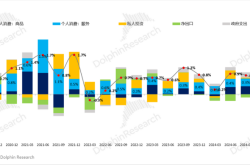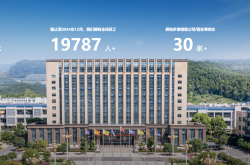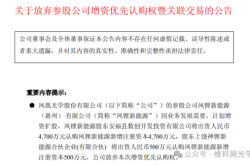Just became profitable after 15 years, FlightMaster's parent company files for IPO in Hong Kong
![]() 11/06 2024
11/06 2024
![]() 588
588

(Image source: Visual China)
Blue Whale News, November 5 (Reporter Shao Yuting) On October 29, the official website of the Hong Kong Stock Exchange showed that Vitality Group Holdings Limited (hereinafter referred to as "Vitality Group") has submitted a listing application to the Hong Kong Stock Exchange, planning to be listed on the main board, with China Merchants Securities International and Minsheng Capital as joint sponsors.
With the two major travel service apps "FlightMaster" and "HighSpeedRailMaster", Vitality Group claims to be the second-largest "one-stop integrated travel platform" in China, second only to Ctrip. However, its "second-place" market share is only 1.2%. To cope with the increasingly fierce competition, the company has continuously increased investment and did not turn a profit until 2023.
Ranking Second, with Ctrip "Dominating"
The prospectus shows that Vitality Group, established in 2009, is an integrated travel platform. In the year of its establishment, the company launched the "FlightMaster" app, and in 2012, it launched the "HighSpeedRailMaster" app, which was the first mobile app in China to provide dynamic high-speed rail information and ticket booking services.
"FlightMaster" and "HighSpeedRailMaster" provide travelers with a full range of multi-mode travel products and services, such as seat selection, train seat selection, flight delay inquiries, airport information navigation, and hotel reservations. Currently, Vitality Group's services cover more than 5,000 airports in over 220 countries and regions, including over 3,000 domestic railway stations and reservation options for over 400,000 hotels.
Currently, the cumulative number of registered users across all Vitality Group platforms exceeds 174 million. In 2023, an average of 22.7% of Vitality Group's monthly active users were paying customers. According to Frost & Sullivan, Vitality Group's total transaction volume in 2023 was 30.8 billion yuan, ranking second among one-stop integrated travel platforms in China, after Hong Kong-listed Ctrip (09961.HK).
While seemingly in second place, China's integrated online travel service market is relatively fragmented and highly competitive, with over 1,000 providers offering one or two of the following services: online transportation booking, online accommodation booking, or travel data solutions. However, Vitality Group's market share is much lower than that of its "elder brother" Ctrip. According to Frost & Sullivan, based on the GMV of integrated online travel services in 2023, the top five providers in China accounted for approximately 67.3% of the total market size, with Ctrip ranking first with a share of 31.6%. Vitality Group ranked eleventh with only a 1.2% market share.
Currently, Vitality Group's revenue scale is still relatively small, and it did not turn a profit until 2023.
From 2021 to 2023 and the first half of 2024, Vitality Group recorded revenues of 344 million yuan, 280 million yuan, 502 million yuan, and 281 million yuan, respectively; profits during the period were -358 million yuan, -758,000 yuan, 59.309 million yuan, and 31.712 million yuan, respectively; and gross profit margins were 49.8%, 47.1%, 56.8%, and 58.6%, respectively.
Regarding this, Vitality Group stated that the decline in travel demand and frequency due to the impact of the COVID-19 pandemic in 2022 significantly reduced platform transaction activities, leading to a decrease in gross profit margin during the same period; in 2023, business activities and travel demand recovered significantly, increasing the number of platform transactions and improving the gross profit margin.
Specifically, Vitality Group's revenue mainly comes from three segments: travel-related services, online marketing services, and data and technology services. Among them, travel-related services contributed nearly 90% of the revenue, amounting to 252 million yuan in the first half of 2024, accounting for 89.5%; online marketing services generated revenue of 19.712 million yuan, accounting for 7.0%; and data and technology services generated revenue of 9.868 million yuan, accounting for 3.5%.
Travel-related services include transportation ticketing services, business travel management services, ride-hailing services, accommodation reservations, and other services. Among them, transportation ticketing services are the pillar of its revenue, generating 206 million yuan in the first half of 2024, accounting for 73.1%; business travel management services generated revenue of 38.208 million yuan, accounting for 13.6%; accommodation reservations and other services generated revenue of 4.881 million yuan, accounting for 1.7%; and ride-hailing services generated revenue of 2.982 million yuan, accounting for 1.1%.
Declining Ride-Hailing Services, Immature ToB Business
After years of losses, Vitality Group has been trying to find new breakthroughs.
In 2015, Vitality Group launched the ride-hailing business "Huoli Chauffeur." At that time, the ride-hailing market was highly competitive, with Didi merging with Uber China and expanding its hitchhiking service. Other players such as Shouqi Limousine and Caocao Car also joined, gradually bringing the ride-hailing industry into an era of standardization.
Although an early entrant, "Huoli Chauffeur" did not stand out in the early ride-hailing market competition. According to the prospectus, from 2021 to 2023 and the first half of 2024, the revenue generated by "Huoli Chauffeur" was 11.3401 million yuan, 3.9216 million yuan, 8.026 million yuan, and 3.0956 million yuan, respectively, while ride-hailing platform Caocao Chuxing generated revenue of up to 6.2 billion yuan in the first half of 2024.
Therefore, ride-hailing services account for a relatively small portion of Vitality Group's revenue and have shown a decreasing trend year by year. From 2021 to 2023 and the first half of 2024, this business accounted for 3.3%, 1.4%, 1.6%, and 1.1% of total revenue, respectively.
With ride-hailing services struggling, Vitality Group attempted to expand its ToB business.
In 2017, the company further expanded its transportation ticketing services for corporate clients. It is reported that Vitality Group provides end-to-end management services for corporate clients' meetings, incentive travel, large conferences, exhibitions, and other business travel needs. The company typically charges corporate clients a package price, generating business travel management service revenue after deducting costs.
Vitality Group stated in the prospectus that after more than a decade of using technology-enabled solutions to serve over 100 million travelers, it has accumulated massive travel-related data, mature data analysis capabilities, and strong AI capabilities. This enables it to further expand its business scope and become a solution provider for corporate clients.
According to the prospectus, from 2021 to 2023 and the first half of 2024, Vitality Group's revenue from its top five clients was 54.4 million yuan, 84.6 million yuan, 89.8 million yuan, and 63.3 million yuan, respectively, accounting for 15.9%, 30.2%, 18%, and 22.5% of total revenue, respectively; among them, the revenue attributable to the company's largest client was 17 million yuan, 38.1 million yuan, 30.9 million yuan, and 25.5 million yuan, respectively, accounting for 5%, 13.6%, 6.2%, and 9.1% of total revenue, respectively.
To acquire customers and increase brand recognition, Vitality Group's marketing expenses have increased year by year. From 2021 to 2023 and the first half of 2024, Vitality Group's sales and marketing expenses were 94.5 million yuan, 44.1 million yuan, 116 million yuan, and 62.6 million yuan, respectively, accounting for 27.5%, 15.7%, 23.1%, and 22.3% of total revenue for the corresponding periods, respectively.
In 2024, Vitality Group announced the official launch of its overseas business strategy, but years of losses and investments in marketing and brand building have left the company somewhat underfunded.
Since 2022, Vitality Group's employee benefit expenses have declined significantly. According to the prospectus, from 2021 to 2023, Vitality Group's employee benefit expenses were 497 million yuan, 117 million yuan, and 134 million yuan, respectively. As of the end of the first half of 2024, Vitality Group held cash and cash equivalents of 481 million yuan, total liabilities of 441 million yuan, and total current liabilities of 433 million yuan.
Since its establishment, Vitality Group has completed six rounds of funding, with investors including Shaanxi Bailout Fund, Huasheng Lingshi, Shanghai Chuangji, Zhuhai Fuhai, Ningbo Caesar, and Linghui Jishi, among others, with a total capital increase of approximately 1.2 billion yuan. On the eve of its IPO filing in 2024, Fontus invested 183 million yuan to subscribe for shares in the company, valuing it at approximately 2.087 billion yuan post-investment.
Before the IPO, founder Wang Jiang held a 16.79% stake and could exercise approximately 35.15% of the company's voting rights. Shaanxi Bailout Fund held a 10.67% stake, making it Vitality Group's largest institutional shareholder, while Fontus held a 9.60% stake, making it the second-largest institutional shareholder.
Vitality Group stated that the proceeds from this IPO will be used to enhance R&D capabilities and expand the application of AI in business operations; to expand its global footprint; to enrich and upgrade the company's products; and for working capital and general corporate purposes.







